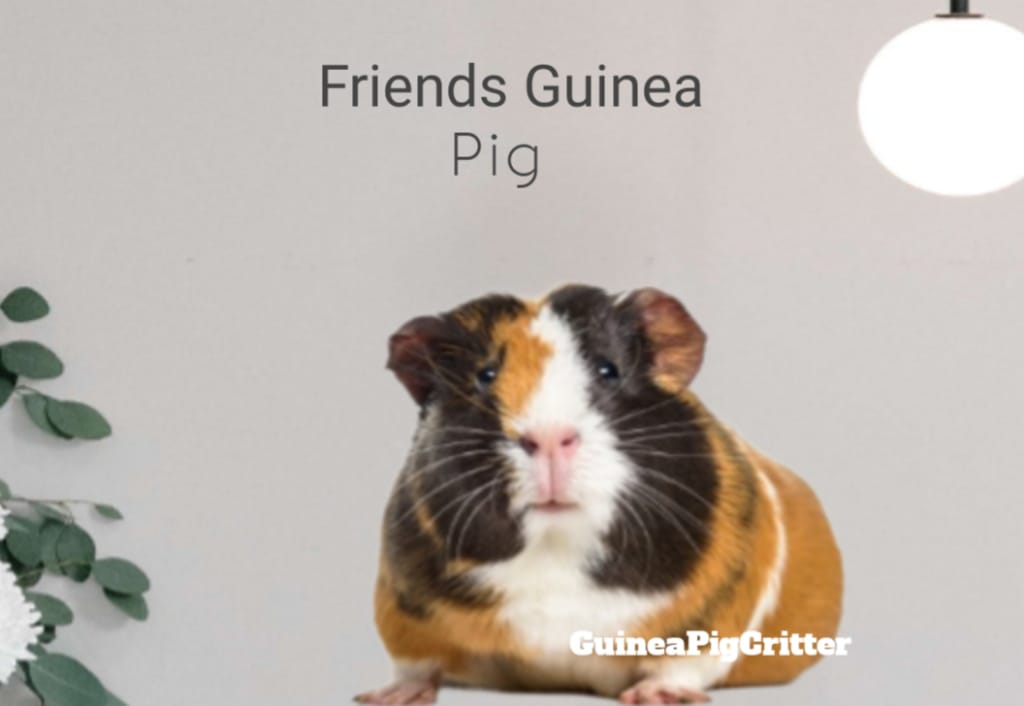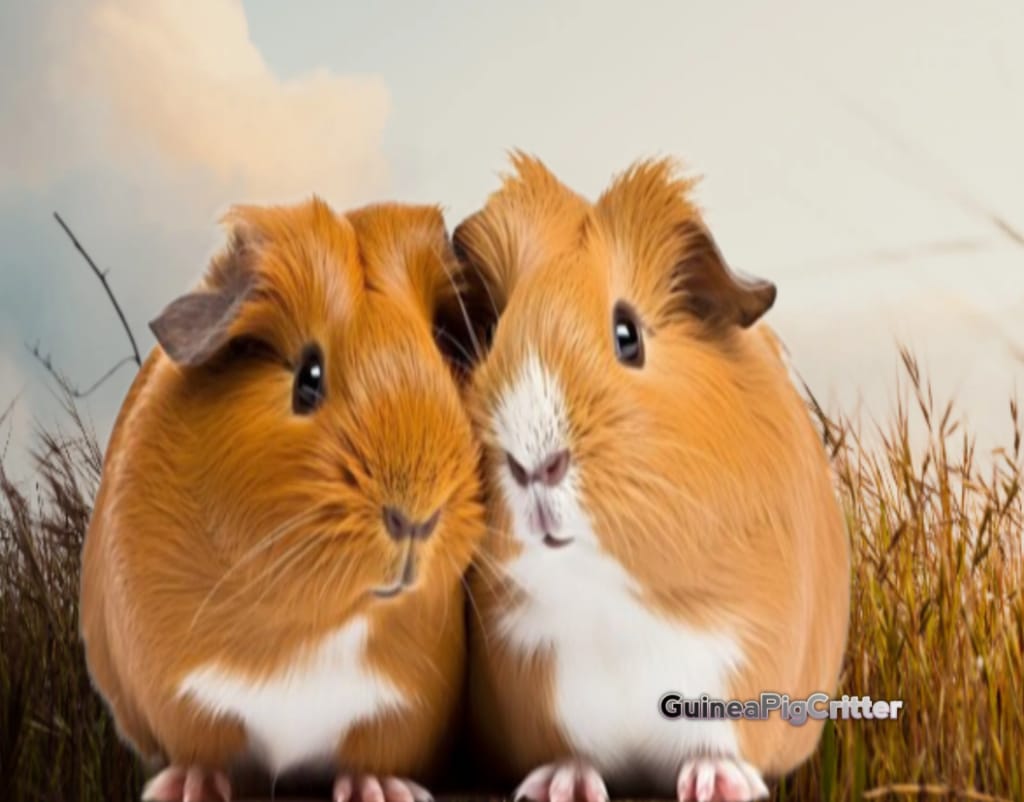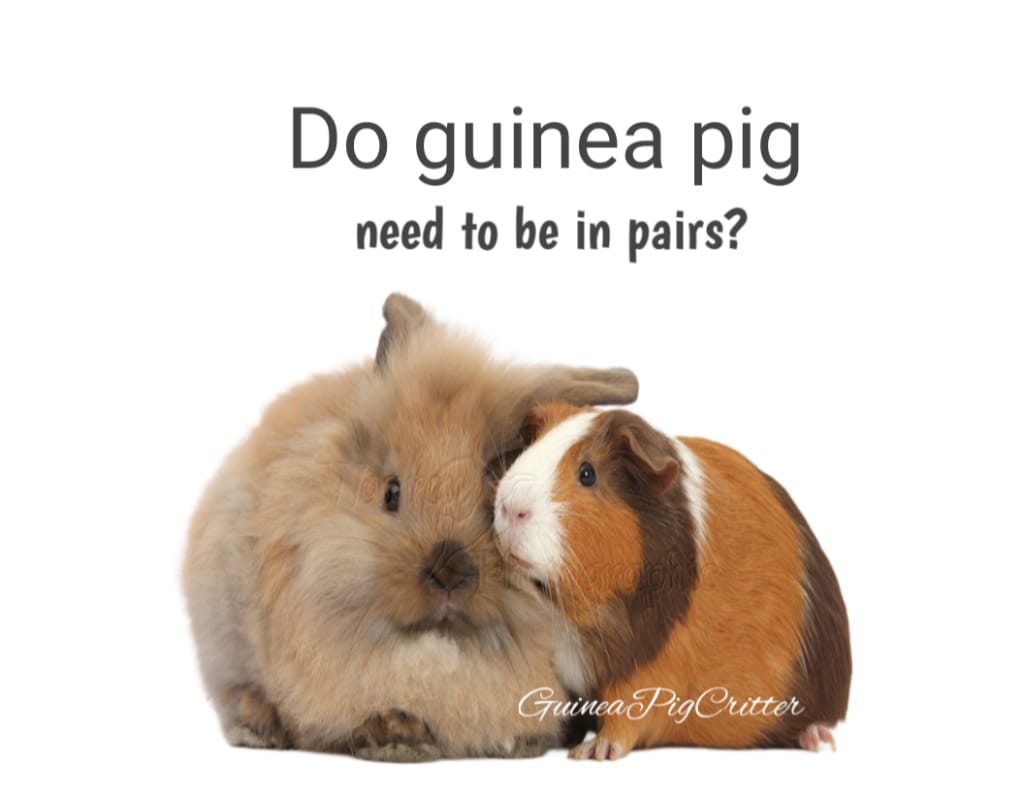Guinea pigs, also known as cavies, are small rodents that have always been cherished as pets. The question faced often by guinea pig fans and owners is whether or not these cute animals should be kept in pairs. In order to keep the pet Guinea Pigs healthy and happy it’s important to be aware of their social needs.
This post will explain why it’s vital for Guinea Pigs to have friends, the benefits of keeping them in twos and how you can safely introduce a new guinea pig to your current pet. The Social Nature of Guinea Pigs.
Guinea pigs are basically sociable creatures by nature. They live in herds known as troops in the wild for protection, companionship and social organization purposes. These troops consist of several guinea pigs who engage in close interactions such as grooming each other, sharing food together, and communicating through various sounds they produce or various movements they make.
So, Today’s Question is:-do guinea pigs need to be in pairs?
As pets, guinea pigs still retain these social instincts. They feed on interaction; thus loneliness and depression might come in if neglected alone for quite some time. Their natural predisposition towards bonding with others therefore makes it important to factor-in their need for companionship when deciding on the number of guinea-pigs to own.
Read also :-Do Guinea Pigs Have Four Teeth?
Advantages of keeping Guinea Pigs in Pairs
There are several benefits that come with keeping guinea pigs in pairs, which contribute to their well-being.
Emotional and Psychological Benefits:
Guinea pigs are happier when they have a fellow mate to interact with. This can greatly enhance the quality of life for them as they groom each other, play around or cuddle together.
Less Stress: Having another guinea pig around reduces stress levels thereby providing emotional support and security especially during times of change or exposure to new environments.
Physical Health Benefits:
More Active: Paired guinea pigs tend to be more active due to playful activities and exploring together. This prevents obesity and helps them maintain a healthy weight,
Increase Immunity: A study done on many animals including Guinea pigs’ shows that social interaction boost their immune system. It is expected that paired guinea pigs will have better health overall and resistance against diseases.
Positive Behaviors:
Learning from One Another: By observing and communicating with its fellows, guinea pig learns social behavior as well as appropriate responses. This may cause changes in behavior such as improved conduct and reduced anxiety.
Enrichment: The presence of companion offers mental stimulation and prevents its boredom. Guinea pigs with a mate do not develop behavior which may be destructive or repetitive.

Possible Problems of Keeping Single Guinea Pigs
Keeping one guinea pig is possible however there are some challenges that come with living alone:
Signs of Loneliness and Depression:
Reduced Activity: A guinea pig that is lonely can become inactive and indifferent to its environment.
Lack of Appetite: Lowered appetite as a result of depression can cause loss of weight and ill health.
Vocalization Changes: When guinea pigs are lonely, they tend to vocalize more often by making high pitched sounds or being distressed to seek attention or show their discomfort.
Isolation Related Health Issues:
Weakened Immune System: long term loneliness weakens the immune system rendering it defenseless against infections and diseases.
Digestive Problems: Digestive issues like diarrhea or gastrointestinal stasis could arise due to stress and loneliness.
Other Behavioral Problems:
Destructive Behavior: If it were left alone in the cage for a long time, this may react by either chewing on the cage bars, over-grooming itself, scratching along with other behaviors out of boredom.
Aggression: In some cases, a lone guinea pig may develop more aggression towards people or other animals due to frustration and lack of socialization.
How to Introduce a New Guinea Pig to an Existing Pet
Introducing a new guinea pig to your existing pet requires careful planning and patience to ensure a smooth and successful transition. Here are the steps you should follow:
Quarantine the New Guinea Pig:
Health Check: Keep the baby guinea pig separate for at least two weeks in order to be on the lookout for any signs of illness as well as ascertain that it is healthy before introducing it to your existing pets.
Neutral Territory
Initial Introduction: Allow them meet in a place where none of them has already established themselves. This will help prevent territorial aggression.
Gradual Introduction
Short Sessions: Initially do it for short sessions increasing gradually as they start getting comfortable with each other.
Positive Reinforcement: Give treats and praise both pigs during introductions periods so that they can make positive associations with each other.
Observing conduct
Signs of Acceptance: Watch for good behavior, such as preening, rubbing heads together and body language that indicates relaxation; these are indicative of guinea pigs getting along.
Signs of Aggression: Observe biting each other, running after one another or excessive teeth grinding/ chattering. If this happens, separate the animals and try to reintroduce them at a later stage.
Permanent Housing
Shared Space: Once the guinea pigs have bonded successfully, create an enclosure with space and hiding spots where there can be multiple food bowls and water bottles to avoid competition.
Alternatives to Pairing: Can One Ever Have a Single Guinea Pig?
There are times when keeping a single guinea pig may be necessary or preferred. However, extra care should be taken in order to ensure their wellbeing:
Situations for a Single Guinea Pig:
Medical Issues: Some guinea pigs may be unsuitable for pairing due to medical conditions they have.
Owner Availability: A single guinea pig might do well if the owner is able to give it plenty of interaction everyday and provide enrichment always
Providing Extra Care and Attention:
Social Interaction: Give your pet guinea pig lots of attention by engaging in play activities including grooming or cuddling.
Environmental Enrichment: Give a choice of various gadgets, tunnels and places of hiding to keep your Guinea pig’s mind engaged and avoid monotony.
Environmental Enrichment for Single Guinea Pigs
Rotate Toys: Keep changing the toys and accessories in the enclosure of your guinea pig so that they do not get bored.
Foraging Activities: Creating foraging opportunities by hiding treats in hay or providing puzzle toys that encourage natural behaviors.

Common Myths About Pairing Guinea Pigs
There are several misconceptions about keeping guinea pigs in pairs. Here are some common ones debunked:
Myth: Single Guinea Pigs Can Be Just as Happy:
Reality: Although one guinea pig can be happy with enough human interaction, it will generally do better with another one belonging to its own kind.
Myth: Guinea Pigs Are Solitary Animals.
Reality: These animals live together naturally in groups. This is a very social species.
Myth: Pairing Guinea Pigs Always Leads to Fighting:
Reality: While some initial squabbles may occur during introductions, most guinea pigs can live harmoniously when properly introduced and given adequate space.
Read this :-Can guinea pigs and humans live together?
Frequently Asked Questions (FAQs)
Is It Possible to Keep a Guinea Pig Alone?
Yes, guinea pigs can live solo, but they need additional care, attention, and enrichment to prevent them from feeling lonely or depressed.
How Can I Tell if My Guinea Pig is Lonely?
Reduced activity; not eating; increased vocalization; change in behavior: these are some of the symptoms of loneliness.
What Are Good Guinea Pig Pairings?
Male-Male pairings or Neutered Male/Female pairs (spayed) are commonly used because they tend to be more secure in terms of breeding prevention and aggression reduction.
Are Guinea Pigs Suitable for Other Animals?
This is generally ill-advised as guinea pigs have different social needs and methods of communication. However, supervised contact with other gentle animals may be feasible.
How Much Space Do Two Paired Guinea Pigs Need?
A roomy pen is a must. For two guinea pigs at least 7.5 square feet, plus extra area per each additional one.
What Should I do if My Pet Guinea Pigs Start Fighting?
If there is any fighting going on between them just separate them so that they can calm down then you can reintroduce them slowly into a neutral territory while monitoring their interaction closely.
Conclusion
To sum it all up, guinea pigs are social beings who greatly benefit from having a pair. Friendship offers emotional, mental and physical advantages that contribute to a happier and healthier existence. It is possible to keep one guinea pig; however, it will take extra dedication to ensure their welfare. Knowing the social requirements of guinea pigs and giving them the right type of care is very critical for any pet owner. Taking into account their innate instincts as well as some actions you can build a supportive surrounding in which your guinea pig may flourish.


